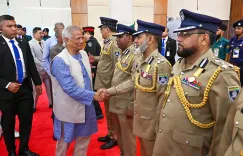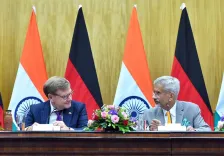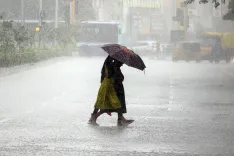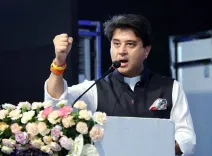How did Nepal's President Ram Chandra Paudel call for support to hold elections after criticism over the house dissolution?
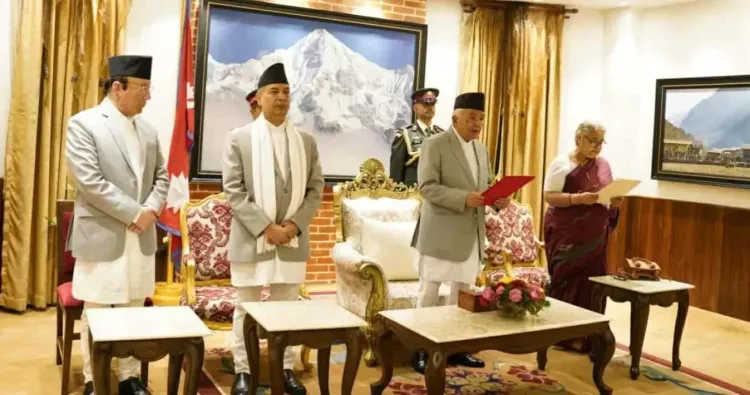
Synopsis
Key Takeaways
- President Ram Chandra Paudel calls for political unity.
- The House of Representatives was dissolved amid allegations of corruption.
- Criticism arose from eight political parties regarding the dissolution's constitutionality.
- The elections are set for March 5, 2024.
- Negotiations continue amidst ongoing protests.
Kathmandu, Sep 13 (NationPress) Nepal's President Ram Chandra Paudel made a call on Saturday for comprehensive cooperation from all political factions to ensure the successful conduct of the House of Representatives election set for March 5 of the coming year. This plea came in the wake of significant criticism from major political parties regarding the dissolution of the lower house that occurred late Friday night.
The dissolution was driven by the key demand of the Gen-Z protestors, who have expressed concerns regarding the alleged corrupt practices among current parliamentarians. Following the suggestion of newly-appointed Prime Minister Sushila Karki, the house faced an untimely end after being established in 2022.
In a press release issued on Saturday evening, President Poudel remarked that a peaceful resolution had been discovered amid an incredibly challenging and alarming scenario, describing it as an opportunity made possible through strategic intervention.
“The Constitution and parliamentary framework have been safeguarded, and the federal democratic republic remains unbroken,” he stated, urging all parties to sincerely make use of this hard-won opportunity to collaboratively work towards the elections slated for March.
Earlier, eight political factions represented in the now-dissolved House of Representatives voiced their discontent regarding the house's dissolution, arguing that it breached democratic ethics and labeled the move as unconstitutional.
“This is against Article 76 (7) of the constitution, established precedents by the Supreme Court, and constitutional traditions,” the eight parties declared in a unified statement. “Such unconstitutional actions are unacceptable to us.”
Among the political entities condemning the house's dissolution are: Nepali Congress, Communist Party of Nepal (United Marxist-Leninist) (CPN-UML), CPN (Maoist Centre), CPN (Unified Socialist), Janata Samajbadi Party, Janamat Party, Loktantrik Samajbadi Party, and Nagarik Unmukti Party.
As the Gen-Z protestors insisted on the house's dissolution, negotiations involving their leaders, the President, and the Nepal Army dragged on due to lobbying from major political parties for the continuation of the lower house.
Some leaders from the Gen-Z protestors conveyed to the media that retreating from the demand for dissolution was not an option.
Debates also arose regarding whether to appoint a new Prime Minister or dissolve the lower house first, with Gen-Z leaders emphasizing the need for dissolution before the new Prime Minister could be appointed. After President Poudel, who also serves as the guardian of the constitution, raised concerns about constitutional grounds without the Prime Minister's recommendation, it was agreed to appoint a Prime Minister first, who would then propose the dissolution of parliament. Consequently, following the appointment of Karki as Prime Minister on Friday night, the house was dissolved around midnight.
A Nepali digital publication quoted the newly-appointed Prime Minister Karki stating: “The President had maintained that Parliament cannot be dissolved without the Prime Minister’s endorsement. Ultimately, the President was also prepared to dissolve it first. All documentation was ready. Since the house was destined for dissolution, it seemed to me that the timing was irrelevant.”


